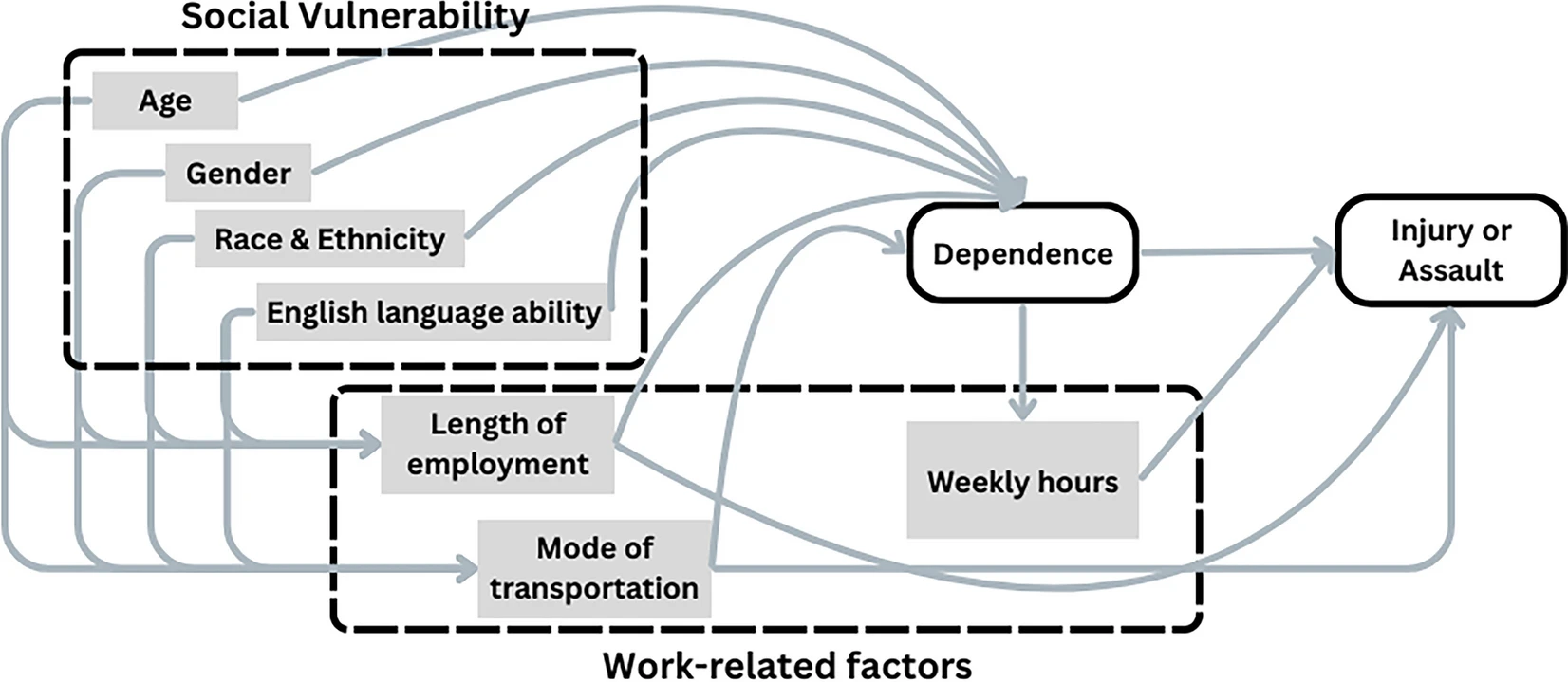
A study published Monday in the Journal of Urban Health by a team of CUNY researchers finds that food delivery gig workers in New York City face a high risk of injury and assault, particularly those dependent on gig work as their main job. The study analyzes data from a survey of 1,650 delivery workers, collected between October and December 2021 by the New York City Department of Consumer and Worker Protection.
Alarmingly, about 22% reported experiencing injuries, and 21% reported assaults while on the job, with those using e-bikes or mopeds more than twice as likely to be injured or assaulted compared to those who deliver by car.
Of particular importance was the relationship between dependence on food delivery work and injuries and assaults. Despite claims by digital platforms that their workers are mainly delivering food as a side hustle, over two thirds of survey respondents indicated that gig work was their main or only source of income, including a significant number working over 40 hours a week delivering food. Workers fully dependent on gig work are 61% more likely to experience injury and 36% more likely to experience assault, than those who do delivery gig work as a side job. These figures already account for differences in age, sex, race and ethnicity, language, length of employment, transportation mode (e-bike, moped, car), and weekly work hours across the two groups of workers.

“These findings underscore the inherent risks associated with platform-based delivery work and challenge the notion of gig work as merely a flexible and supplemental income source,” notes lead author Zoey Laskaris, research assistant professor at the Barry Commoner Center for Health and the Environment at Queens College.
“The data show the significant occupational risks faced by fully dependent food delivery workers, who are likely to come from racialized minority populations and have limited English proficiency and make up most of the food delivery workforce,” adds Mustafa Hussein, assistant professor at CUNY SPH.
“Platforms like DoorDash, UberEats, and GrubHub treat their gig workforce as independent contractors – even though most do this work full-time – and so do not have to provide workers compensation or paid sick leave,” says physician and Queens College Professor Sherry Baron. “If they were conventional employees, the delivery companies would have a financial incentive to provide training and safety equipment and ensure that delivery routes were safe.”
“Delivering food on a bicycle in New York City is inherently dangerous, but being managed by an AI-powered algorithm likely makes it even riskier, especially for those most dependent on the work to put food on the table and pay the rent,” observes Nevin Cohen, CUNY SPH professor and director of the CUNY Urban Food Policy Institute. “More research is needed to understand the mechanisms through which dependence on gig work and the pressures imposed by the AI-controlled platforms increase the risk of injuries and assaults, and the policies and programs that can improve gig worker health and safety.”


Leave a Reply